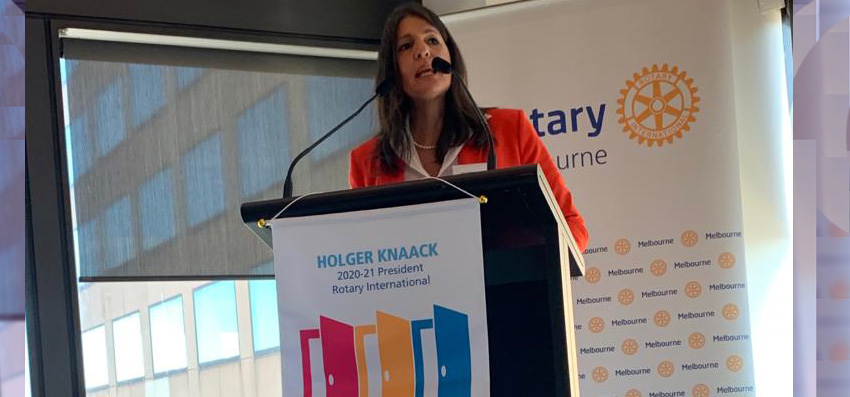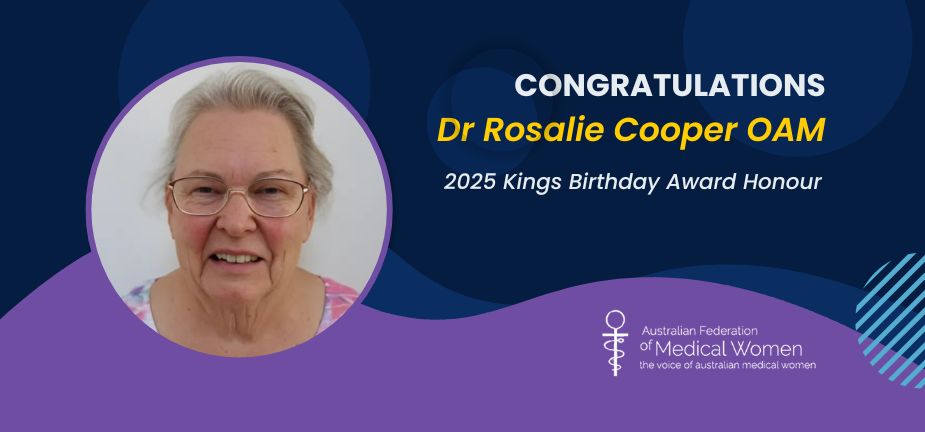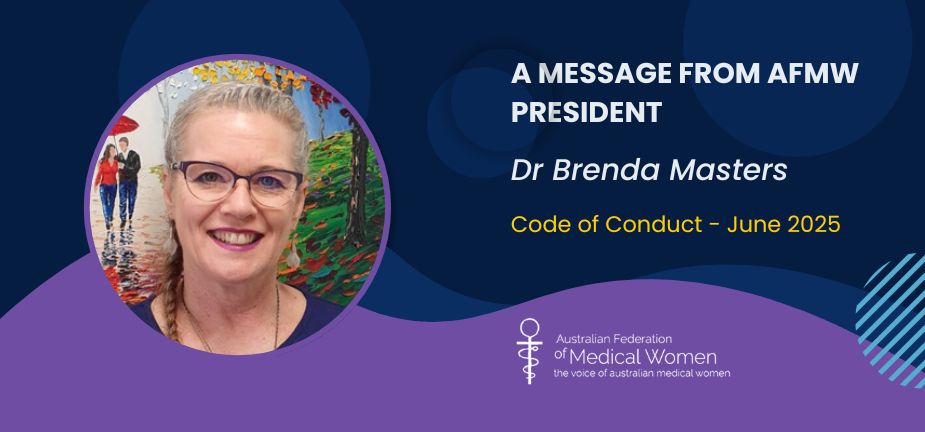A/Professor Magdalena Simonis, President AFMW spoke to Rotary Club Melbourne on Wednesday 31st March 2021 on the topic of: Adolescent mental health, school failure and the juvenile justice system: where are the integrated support services?
Key statements made
- Adolescents are our future we need to invest in their care: across childhood, school and their transition to adulthood. They cannot stand on their own…yet.
Adolescence according to Un/ WHO spans from 10-19 years of age but the Centre for Adolescent Health Royal Children’s Hospital Melbourne, which is the research centre of excellence, defines this as spanning from 10-24 years, more in keeping with ranges of brain and physical development. It’s a period of change. - The role of parents in an adolescent’s life, remains important
- Poor parental monitoring is clearly linked to negative outcomes in adolescence
- Limits set by parental monitoring, may provoke tension so expect it to not be easy living with adolescents.
- Over 75% of mental health issues occur before the age of 25
- Suicide continues to cause the largest loss of life of young people in Australia (36% of all 18-24yr)
- one third (32.4 per cent) of all Aboriginal and Torres Strait Islander child deaths occur due to suicide
- Only 31% of young women and 13% of young men with mental health problems seek professional help although those with severe disease around 80% seek support- the mild /moderate group is being missed and is at risk of slipping through the gaps.
- Juvenile justice system in Australia, with exception of ACT is minimum age of 10years for criminal responsibility (UN and 31 other countries opposes this)with 89% having at least one severe neuro-developmental disorder
- 4/5 are male
- School failure is a common symptom of family dysfunction – which results in emotional disturbance, behavioural difficulties.
- Domestic and family violence might be an underlying cause of the family dysfunction so a multidisciplinary approach must be taken when looking at adolescent mental health and school failure.
- The poorer the family and suburb, the bigger the problem and the outcome is worse – this is amplified in our recent migrant populations and first nations communities – multifactorial
- Mental health deteriorates and suicidality increase whilst incarcerated
- >50% return due to reoffence – recidivism is a big issue.
- The higher the level of education of the parents the better the outcome of the adolescent
- The higher the socioeconomic demographic of the family unit, even in family break up, the better the outcome.
- Social Determinants if Health are very important.
The system: What’s there and what’s needed?
Orygen 20 years on-
The national policy centre for youth mental health
Centre of research has been at the forefront of developments in youth mental health research, policy, treatment, and health system design that are shifting the paradigm nationally and globally towards creating and spreading evidence-based, appropriate, acceptable and effective services to people aged 12-25
Headspace – national and for schools
strategic plan 2019-2022. of note:
“In particular, we have demonstrated the cost- effectiveness of early intervention, with a return on investment of up
to $6.19 for every dollar spent”
Education – a framework e.g. The Australian Student Wellbeing Framework (the Wellbeing Framework) is a foundational document.
How to improve outcomes.
1. In the community public policy
- Prenatal: reduce stigma of mental health disease and increase awareness that alcohol in pregnancy harms babies.
- Destigmatise Mental Health issues
- DFV awareness – bystander participation and increase services for safer families.
2. Antenatal and Post-natal care
- DFV increases in pregnancy – doctors, Maternal health nurse need to ask the question when there is an element of concern. I am currently working with the Safer Families Centre for Excellence in developing guidelines for GPs and nursing for this at Department of General Practice which will be rolled out nationally.
3. Maternal and child and family support at time of delivery
- prenatal advice re alcohol in pregnancy must be stressed at all levels
4. Education around early parenting
- RCH has excellent resources / kinder is an opportunity for this also child care – visiting speakers or sessions on parenting issues supported for the community and PHNs
5. At primary school: ‘doctor in the school model’- link up with GP / PHN
- Early Intervention is key – early, continuous supportive and tailored care throughout school for child, parents and teachers.
- School failure is a common sign of difficulty in the home, mental health issues, cognitive/learning issues
- Unmanaged mental health issues lead to behavioural issues which have resulted in worsening of the MH, behaviour, learning difficulties and result in school truancy and rejection by the system that exists to support them.
- PHN/ Support in the school with a specific multidisciplinary team including health professional – provided by not one individual but a unit which includes a counsellor, social worker (who can visit the home and has knowledge of community support services for the family unit and a school psychologist with a GP, much like the ‘doctor in the school’ model, can provide continuous care and support – direct referral from school to psych GP / and psych services
- Multidisciplinary care tailored for the child and support the teachers and parent to better understand the child’s special needs.
- Support for the parent who wants to provide care for the child and yet feels at risk
6. Support the implementation of the Student Wellbeing Framework in each state.
7. Increase the age of criminal responsibility to 14 years of age.
- Intervene early
- Keep children out of court
- Keep children out of custody
- Reduce reoffending
-
- 5500 in youth justice supervision daily with around 16% incarcerated 50% of whom are indigenous.
- 4 in 5 in detention were male
Dr Michael Carr-Gregg – child and adolescent psychologist says:
“it is easier to build strong boys than to repair broken men”
At least this list is a start.
Associate Professor Magdalena Simonis AM is a Past President of the AFMW (2020-2023), former President of VMWS (2013 & 2017-2020) and current AFMW National Coordinator (2024-2026). She is a full time clinician who also holds positions on several not for profit organisations, driven by her passion for bridging gaps across the health sector. She is a leading women’s health expert, keynote speaker, climate change and gender equity advocate and government advisor. Magda is member of The Australian Health Team contributing monthly articles.
Magdalena was awarded a lifetime membership of the RACGP for her contributions which include past chair of Women in General Practice, longstanding contribution to the RACGP Expert Committee Quality Care, the RACGP eHealth Expert Committee. She is regularly invited to comment on primary care research though mainstream and medical media and contributes articles on various health issues through newsGP and other publications.
Magdalena has represented the RACGP at senate enquiries and has worked on several National Health Framework reviews. She is author of the RACGP Guide on Female Genital Cosmetic Surgery and co-reviewer of the RACGP Red Book Women’s Health Chapter, and reviewer of the RACGP White book
Both an RACGP examiner and University examiner, she undertakes general practice research and is a GP Educator with the Safer Families Centre of Research Excellence, which develops education tools to assist the primary care sector identify, respond to and manage family violence . Roles outside of RACGP include the Strategy and Policy Committee for Breast Cancer Network Australia, Board Director of the Melbourne University Teaching Health Clinics and the elected GP representative to the AMA Federal Council. In 2022. she was award the AMA (Vic) Patrick Pritzwald-Steggman Award 2022, which celebrates a doctor who has made an exceptional contribution to the wellbeing of their colleagues and the community and was listed as Women’s Agenda 2022 finalist for Emerging Leader in Health.
Magdalena has presented at the United Nations as part of the Australian Assembly and was appointed the Australian representative to the World Health Organisation, World Assembly on COVID 19, by the Medical Women’s International Association (MWIA) in 2021. In 2023, A/Professor Simonis was included on the King’s COVID-19 Champion’s list and was also awarded a Member (AM) in the General Division for significant service to medicine through a range of roles and to women’s health.










